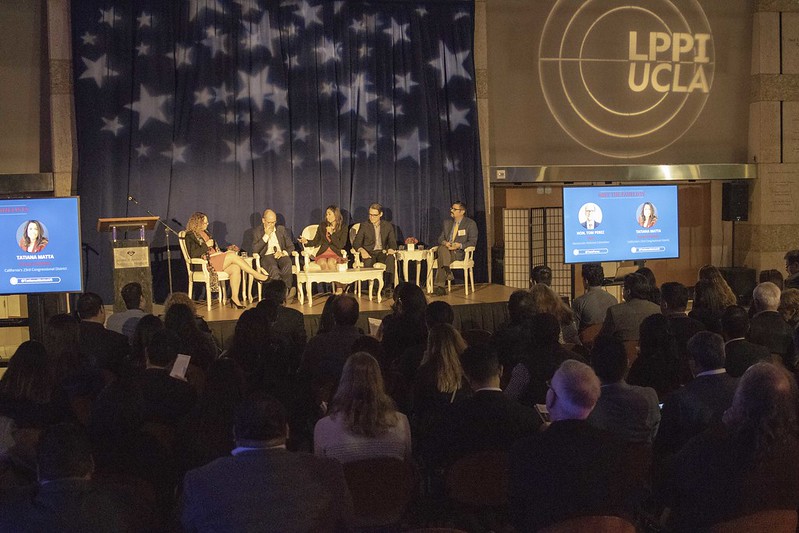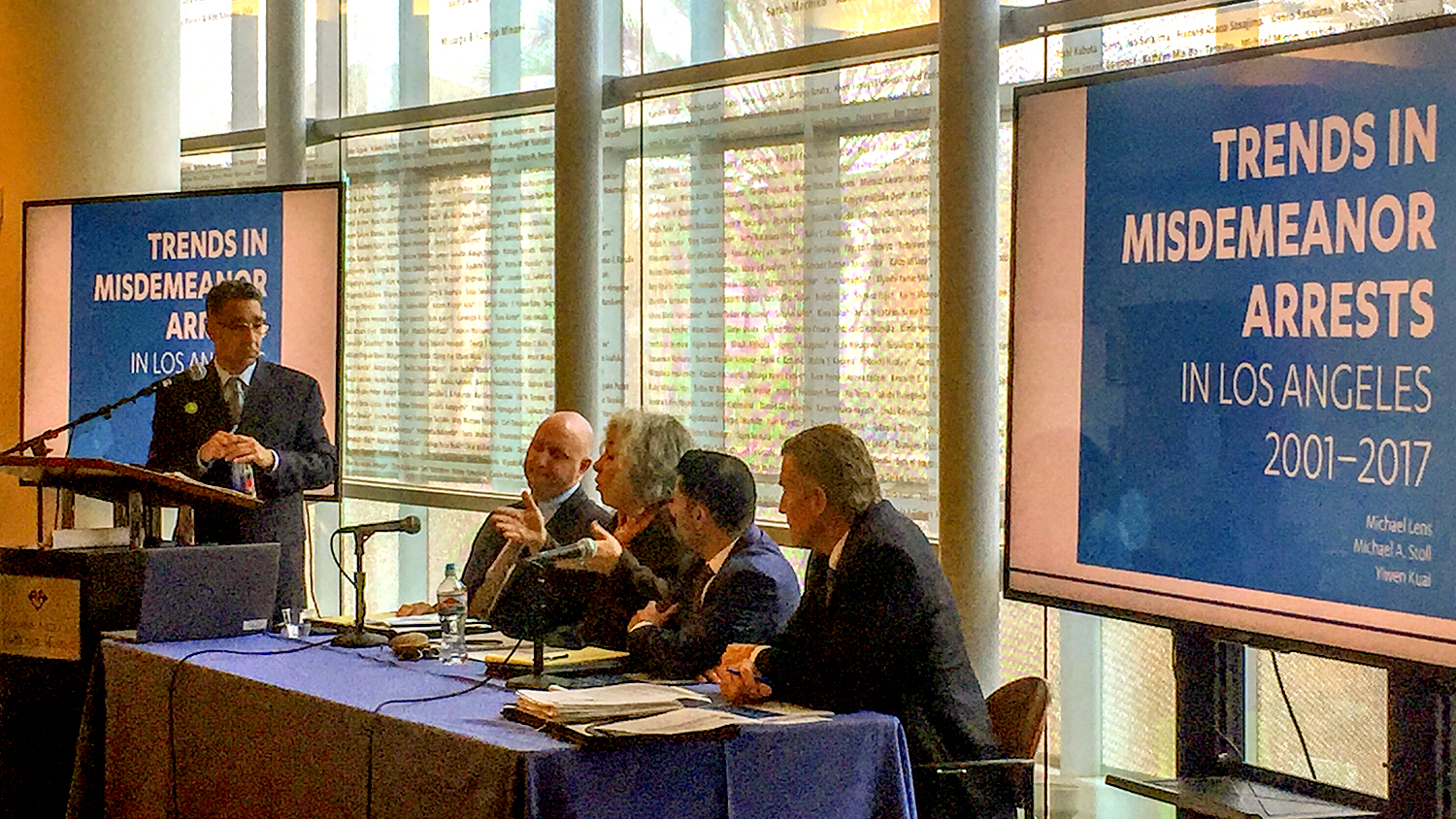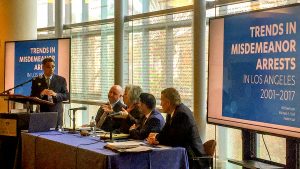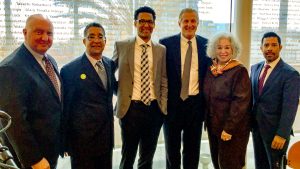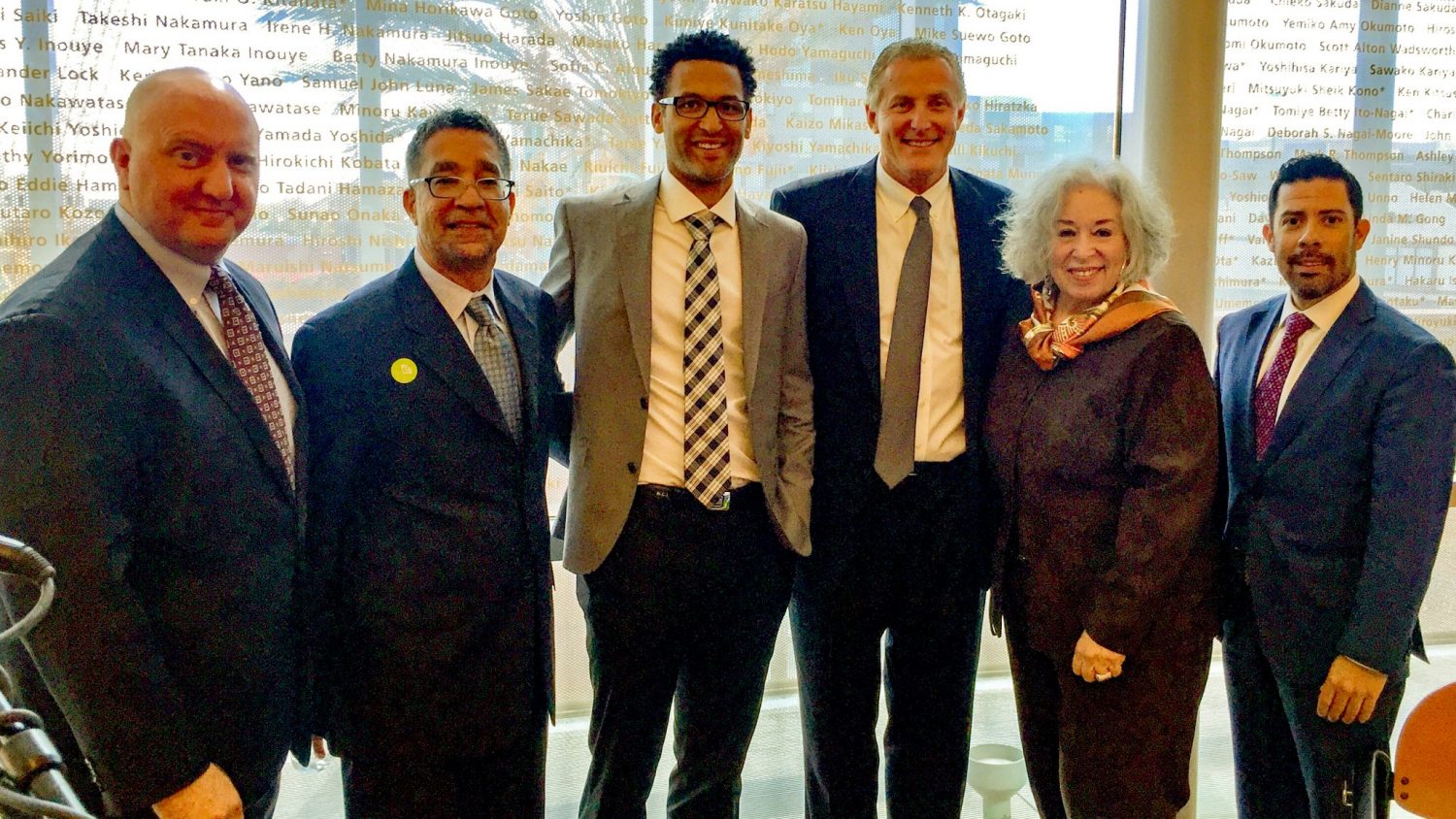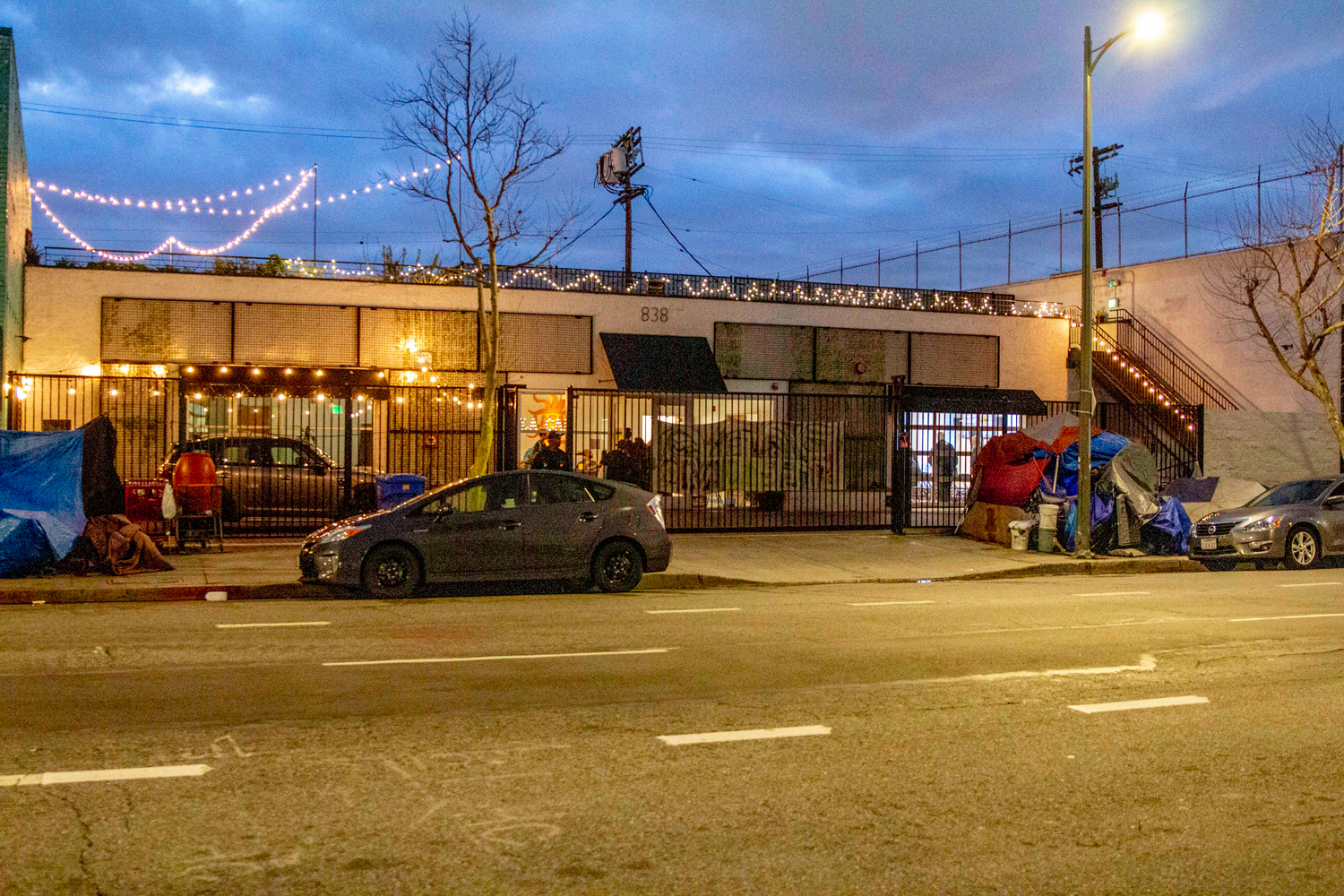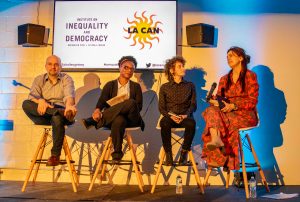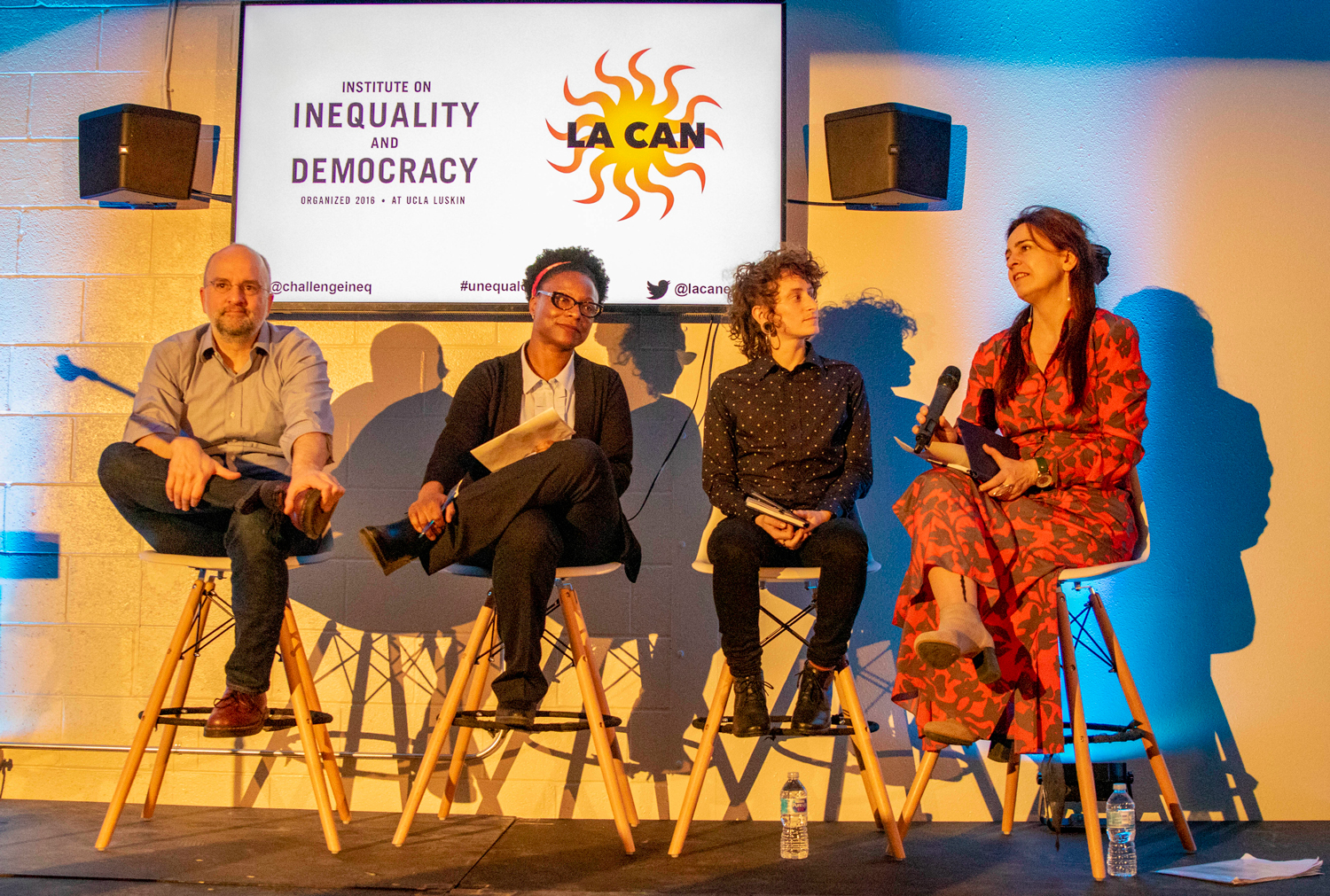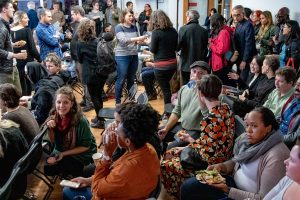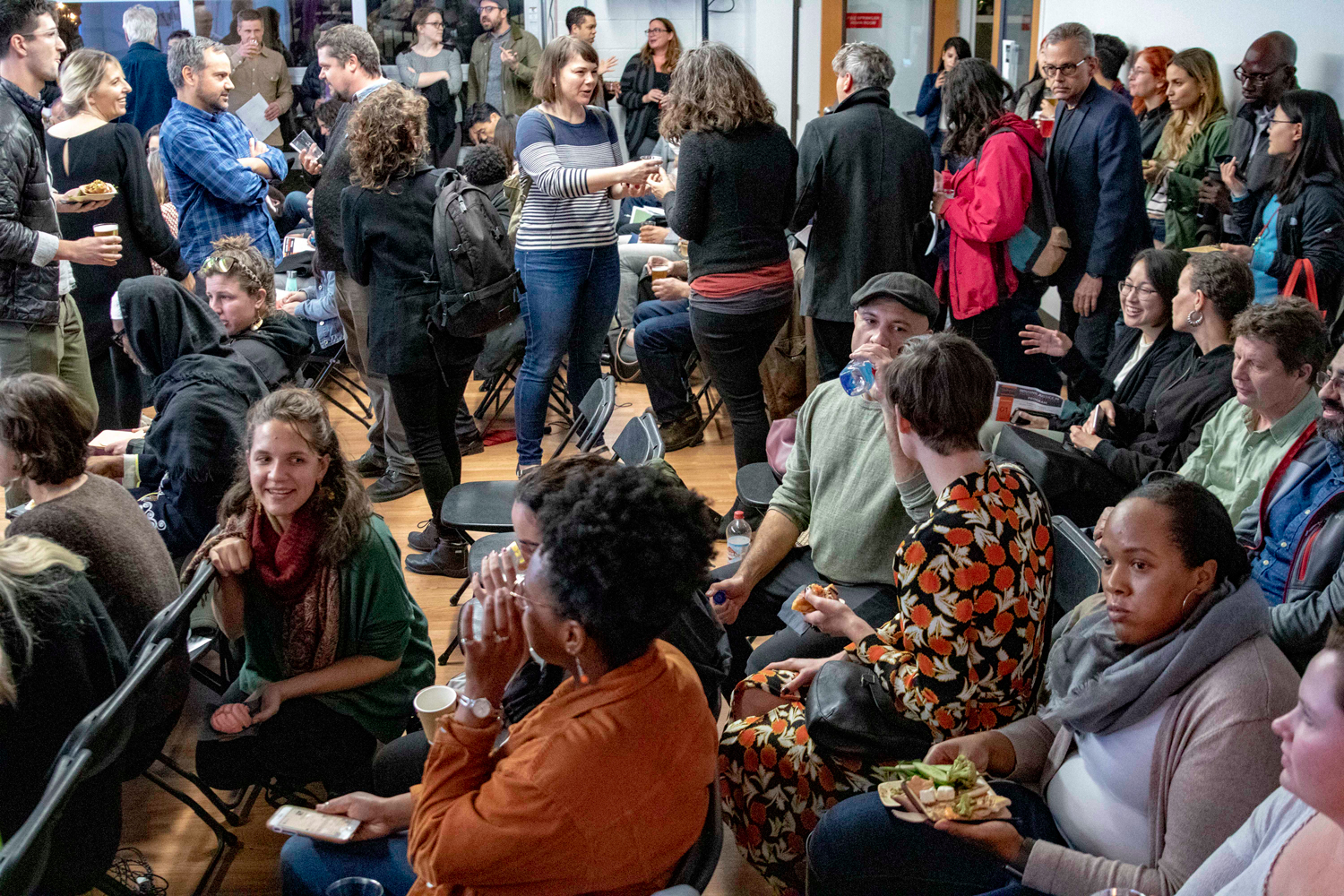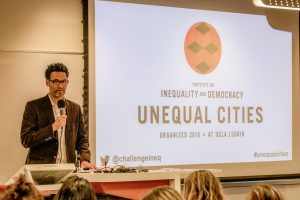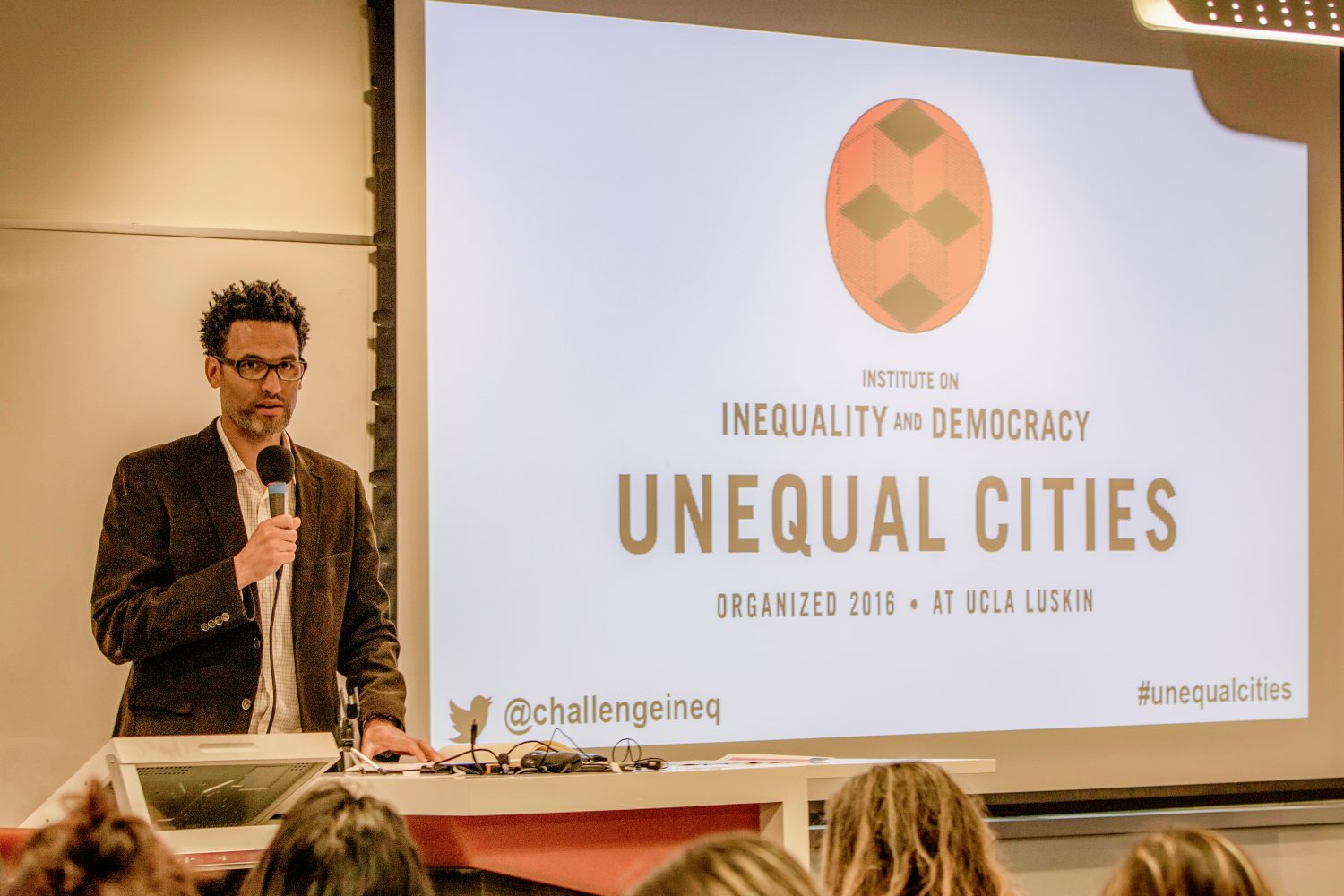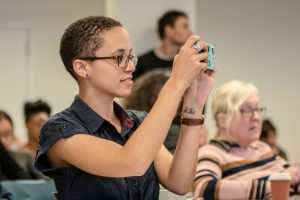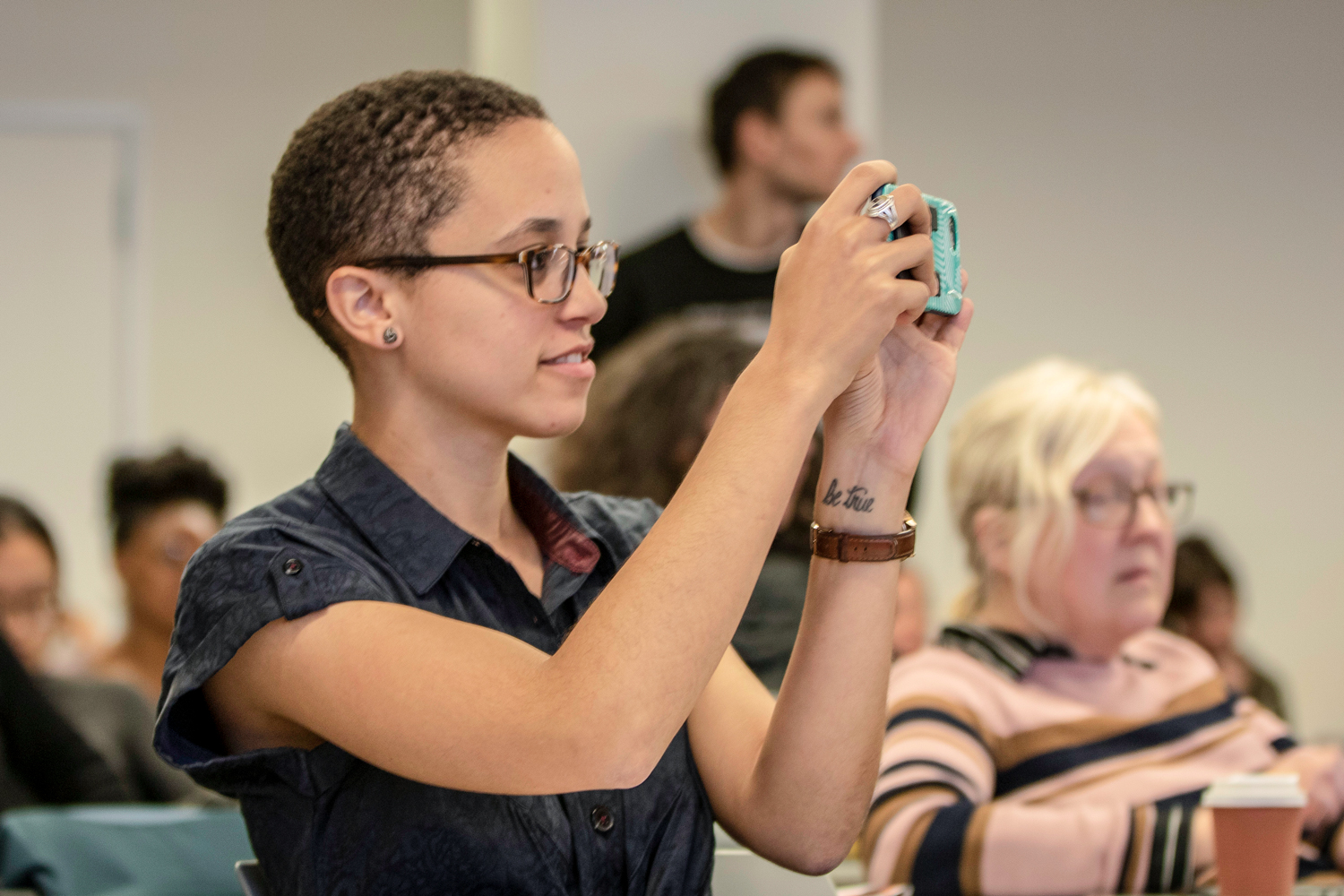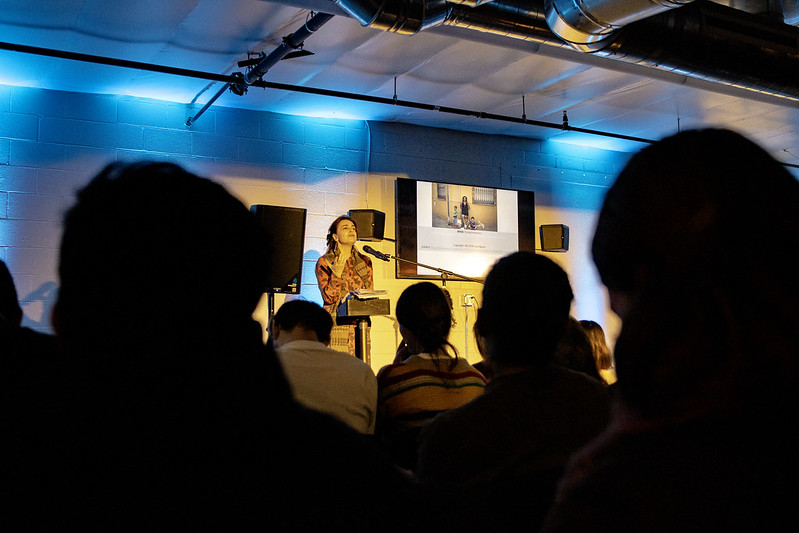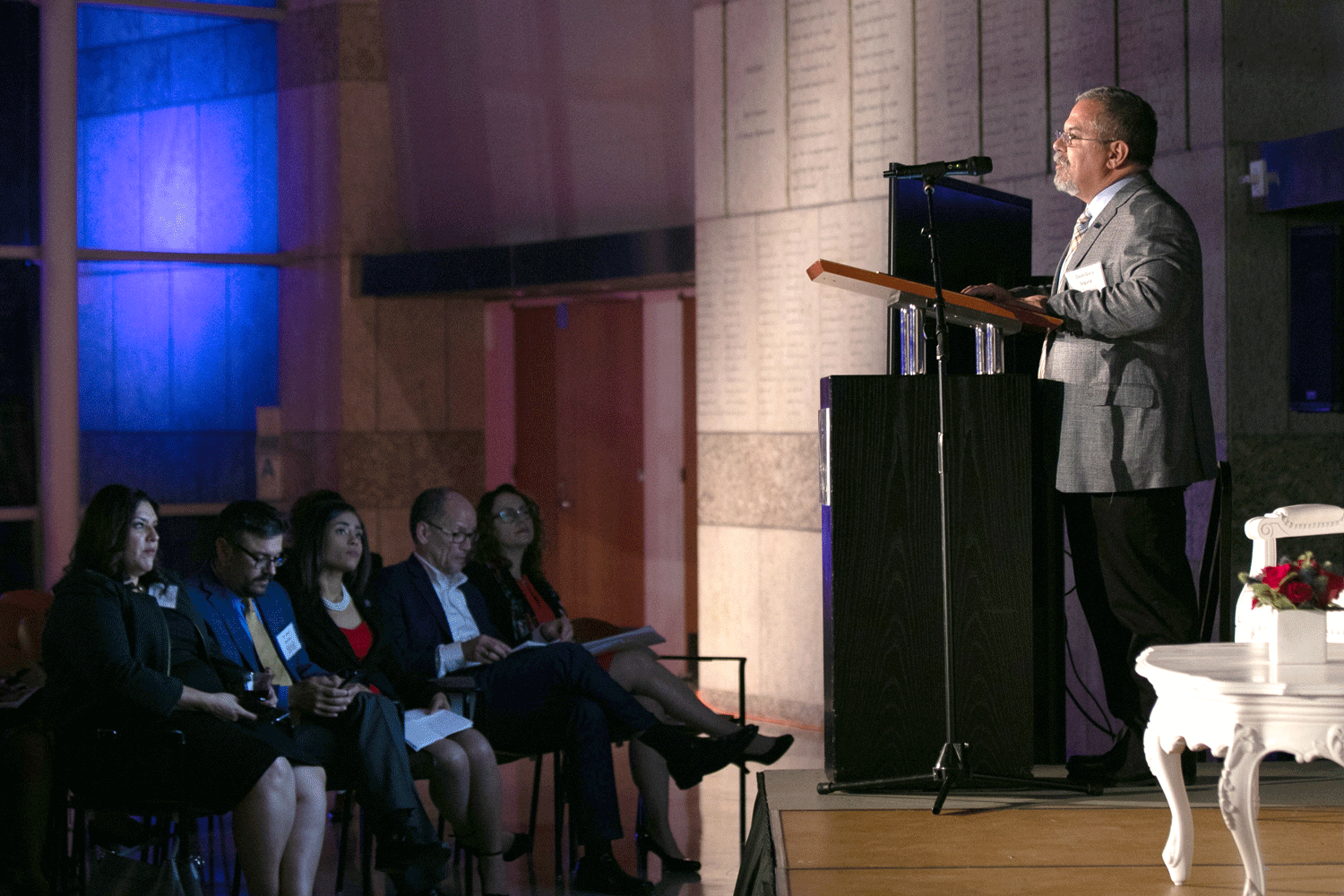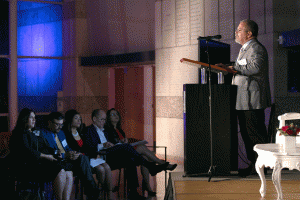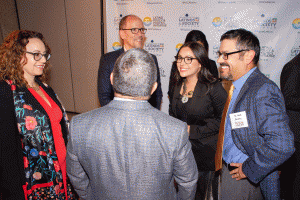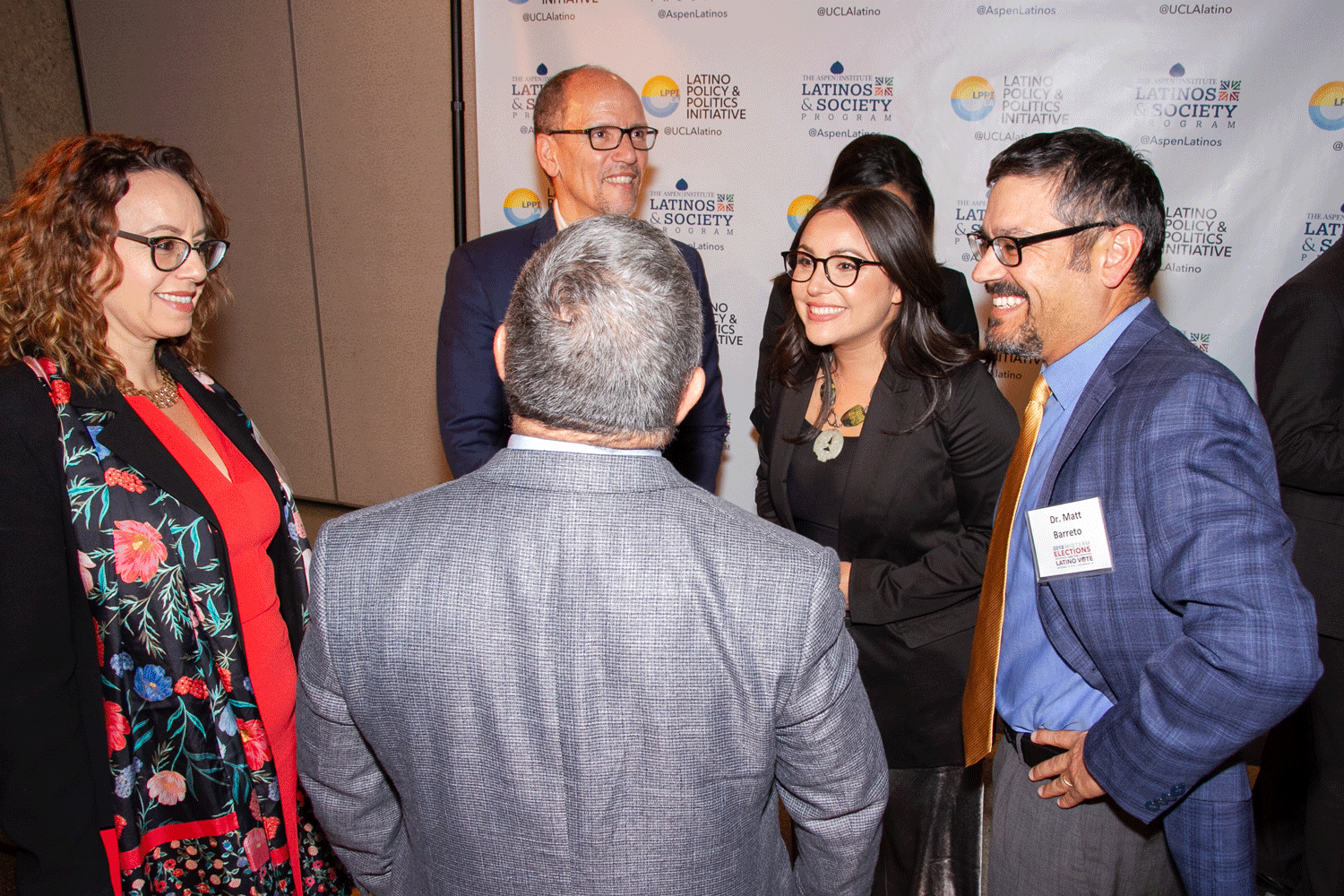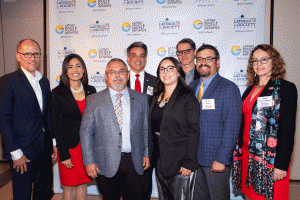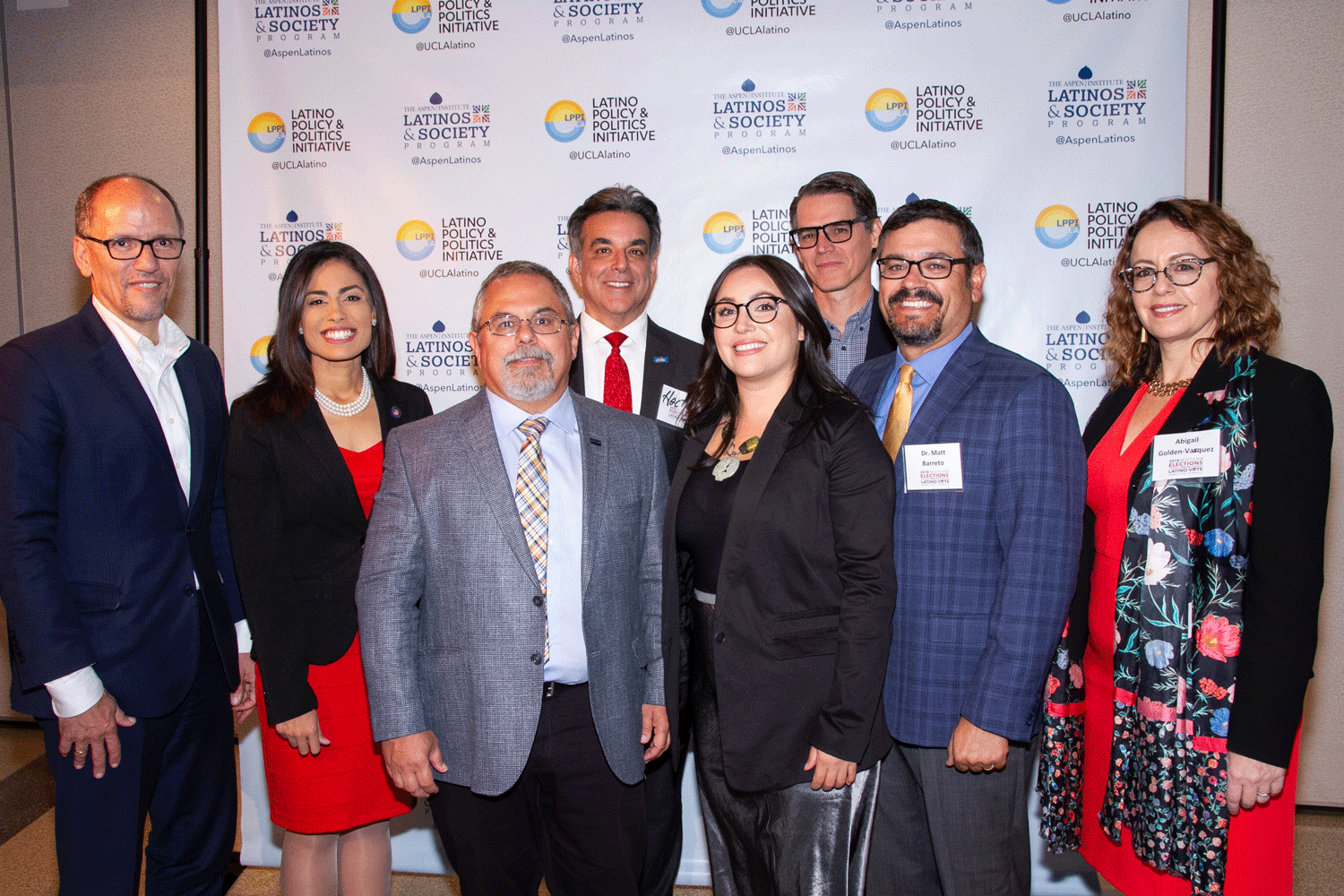By Les Dunseith
As the days passed after the Nov. 6, 2018, elections and vote tallies across the United States were finalized, it became increasingly clear that voters had turned out in record numbers for a midterm election cycle. It also became evident that Latino voters played a pivotal role in many races.
Tom Perez, the first Latino to serve as chair of the Democratic National Committee, told an audience of about 175 people that gathered Nov. 14 at the Japanese American National Museum for a panel discussion of the midterm elections that his party’s get-out-the-vote effort targeted many populations that have been historically hard to motivate in large numbers, including Latinos.
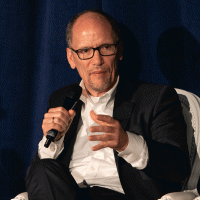
“The number of folks who turned out this year who were first-time voters was a remarkable phenomenon.”
— Tom Perez, chair of the Democratic National Committee
“The number of folks who turned out this year who were first-time voters was a remarkable phenomenon,” Perez said during the event co-hosted by UCLA Luskin-based
Latino Policy & Politics Initiative (LPPI) and the Aspen Institute’s Latinos and Society Program.
Perez was joined by three other experts on the U.S. Latino electorate during a wide-ranging discussion about the outcome of key 2018 races and what it means for the future of Congress and the 2020 presidential election.
Although turnout was higher than in most midterm elections, the proportion of eligible Latino voters who cast ballots was not as high as it could be. Even so, Perez is focusing on carrying the increased voter engagement of 2018 into future elections.
“I mean, you look at turnout and I think it was up 174 percent in 2018,” he said. “Can we do more? Absolutely. There’s no doubt that there are votes that are left on the table.”
The panel discussion coincided with the release of a new report by LPPI that analyzed 2018 midterm results in Arizona, California, Florida, Georgia, New Mexico and Texas — states with large Latino populations.
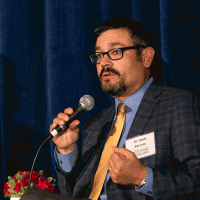
“It’s not about this election. It’s not about the next election. It’s about constantly being present in the Latino community and organizing to get people involved.”
— Matt Barreto, faculty co-director of LPPI
The report found a significant increase in Latino ballots cast, said panelist
Matt Barreto, faculty co-director of LPPI and professor of political science and Chicana/o Studies at UCLA.
“We can observe that here in California about 40 percent of majority Latino precincts in Southern California had over a 70 percent increase. For non-Latino precincts, it was only 20 percent, so it was twice as high in the Latino community,” Barreto noted about the difference in voter turnout in 2018 as compared to 2014.
On the Republican side, Daniel Garza, president of the Libre Initiative, said campaign strategists for the GOP missed opportunities to connect with the Latino electorate on many issues by continuing to focus on the divisive rhetoric that has marked much of Donald Trump’s presidency.
“Donald Trump never shaped my values or my conservative views. I am pro-life. I believe in a limited government. Less regulation,” Garza continued. “But [Republicans] weren’t connecting on those issues as well as they should.”
Even though the midterm results generally favored his party, Perez said it is unwise to view any demographic group as a monolithic entity that will always vote a particular way.
“One of the things I’ve learned is that civil rights is about inclusion. It’s about making sure everyone has a seat at the table,” Perez said. “Demographics are never definitive. You need to show up. You need to build relationships. You need to listen. You need to be responsive. And the reason we were successful is that we responded when we heard from folks, ‘I want a better life for my kids.’”
The panelists also talked about voter suppression and how policymakers could make it easier for citizens to cast their ballots. A key point of discussion was the fact that national campaign strategies often focus on likely voters at the expense of people who vote less often, which includes many Latinos.
Barreto noted that a Latino voter tracking poll asked respondents whether they had been contacted by a campaign. Initially, the rate of contact among Latinos was 40 percent. By Election Day, 53 percent of Latinos in the battleground congressional districts said that they had been contacted — a higher rate for Latinos than for whites in those districts.
Even though 53 percent is historically high, “what’s frustrating is that there are still millions of people who didn’t receive any contact at all,” Barreto said.
Also on the panel was Democrat Tatiana Matta, whose bid to unseat GOP incumbent Kevin McCarthy in U.S. House District 32 was unsuccessful. She spoke about some of the challenges she faced to reach potential supporters in her district in the Central Valley of California.
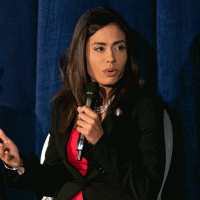
“A lot of [my] connections were made as a Latino, and I’m very grateful for that opportunity. But we have to work for it.” — Tatiana Matta, on the challenge to reach supporters in her bid for a congressional seat
“My district is very rural. So to get from one home to another home, you have to get in your car,” Matta explained. “So you have to physically take volunteers or canvassers to those communities and push those resources out. If not, you’re not going to reach them.”
To reach Latino voters in many areas, candidates must be comfortable speaking Spanish.
“A lot of [my] connections were made as a Latino, and I’m very grateful for that opportunity,” she said. “But we have to work for it.”
Garza expressed a similar sentiment.
“It’s hard to get ahold of people,” he said. In Nevada, for example, Garza said that when his organization’s campaign workers made calls or canvassed, people were often unavailable. “So it’s hard work, too. It’s not because of indifference.”
Barreto interjected. “I think it’s entirely because of indifference,” he said bluntly. “When campaigns look at the voter file and someone doesn’t have a vote history, they just put them in another bucket. They don’t say, ‘How hard are you to contact?’ They just don’t contact them. So we have to change that cycle.”
Barreto told the crowd, which included many people who had participated in Latino voter registration and outreach efforts, that the 2018 midterm elections are just one step in a long process.
“It’s not about this election. It’s not about the next election,” Barreto said of the long-term political importance of the growing Latino population in America. “It’s about constantly being present in the Latino community and organizing to get people involved. And at some point that will pay off for whichever side wants to take advantage of our voters.”
◊
Learn more about the UCLA Latino Policy & Politics Initiative.
More information about the Aspen Institute and its Latinos and Society Program is available on social media via @AspenLatinos.
View video of the event on YouTube:
Browse additional photos on Flickr:
